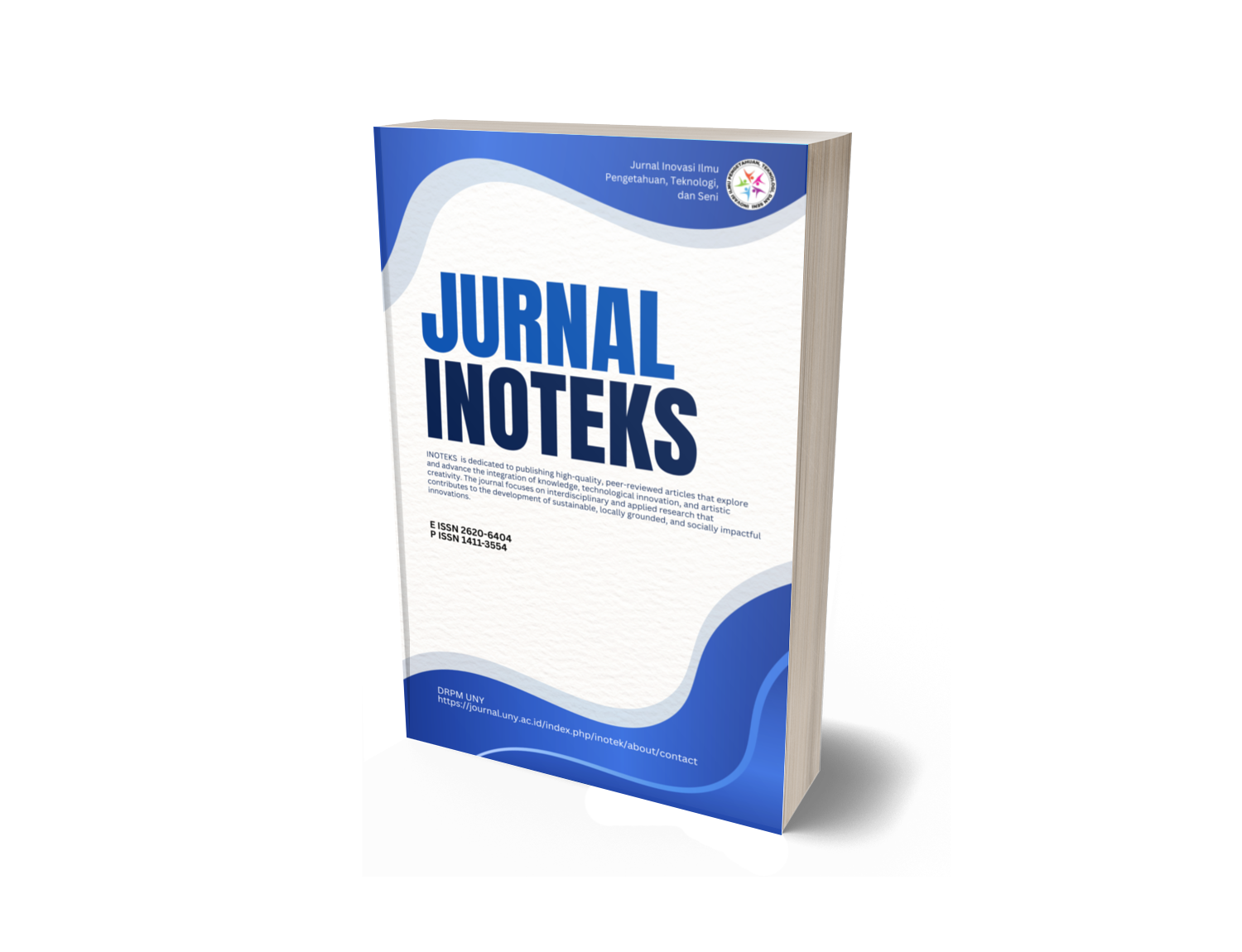Service Excellent lembaga pendidikan di era pandemi Covid-19
DOI:
https://doi.org/10.21831/ino.v1i2.72971Keywords:
excellent service, standard operational procedures, excellent schools, Covid-19Abstract
Service excellent training for educational institutions of Yayasan Pendidikan dan Sosial Cendekia Bantul aims to improve the ability of teachers and foundation managers in providing excellent service to student stakeholders, parents, the community and the government.The method used in this service activity is in the form of lectures and practices. The implementation of community service activities lasted for 2 days online due to the Covid-19 pandemic conditions while still following strict health protocols to maintain health during the Covid-19 pandemic. The material provided is in the form of theory and practice on strategies to develop superior schools, excellent service, and standard operational procedures (SOPs). The results of this PPM activity show that participants can understand the training material well. During the activity, participants also gave positive responses to the material provided, especially in discussing case studies of excellent service to parents and making simple SOPs. The achievement of activity targets is measured using evaluation instruments on the clarity of PPM objectives, training benefits, implementation time, training materials and future program sustainability.
References
Atmoko, Tjipto. (2012). Standar Operasional Prosedur (SOP) dan Akuntabilitas Kinerja Pemerintah. Jakarta: Unpad.
Barata, Atep Adya. (2003). Dasar- Dasar Pelayanan Prima. Jakarta: PT. Gramedia Pustaka.
Bastiar, Z. (2010). Service Excellent Dalam Rangka Membentuk Loyalitas Pelanggan. Manajerial, 8(16), 54–65. https://media.neliti.com/media/publications/147985- ID-none.pdf
Fatimah, Fajar Nur'aini Dwi. (2016). Pedoman Praktis Menyusun Standard Operating Procedure, Quandrant, Yogyakarta
Hidayat, A. (2012). Pengelolaan Pendidikan (Konsep, Prinsip, dan Aplikasi dalam Mengelola sekolah dan Madrasah). Universitas Pendidikan Indonesia, 4–6.
Moekijat. (2008).Administrasi Perkantoran.Bandung:Mandar Maju.
Nina Rahmayanti. (2016). Manajemen Pelayanan Prima, Graha Ilmu, Yogyakarta
Sailendra, Annie. (2015). Langkah-langkah Praktis Membuat SOP. Cetakan Pertama. Yogyakarta: Trans Idea Publishing.
Santosa, Joko Dwi. (2014). Lebih Memahami S.O.P (Standard Operating Procedure). Yogyakarta: Kata Pena.
Suwithi, Ni Wayan,(1994), Pelayanan Prima (Costumer Care), Jakarta.
Tambunan, M. R. (2018). Standar Operasional Prosedur.
PERMENPAN NOMOR 35 TAHUN 2012
https://www.gurupendidikan.co.id/pengertian-pelayanan- prima/
https://tirto.id/link-unduh-buku-saku-panduanpembelajaran-di-masa-pandemi-covid-19- fQUE)
https://www.tasadmin.id/2020/11/soppembelajaran-tatap- muka-di-sekolah.html
https://www.provisieducation.com/from-thefield/7- tahapan-penyusunan-standar-operasionalprosedur
https://dikti.kemdikbud.go.id/kabar- dikti/kabar/tantangan-dunia-pendidikan-di-masa-pandemi
Downloads
Published
How to Cite
Issue
Section
Citation Check
License
- Authors certify that the work reported here has not been published before and contains no materials the publication of which would violate any copyright or other personal or proprietary right of any person or entity.
- Authors transfer or license the copyright of publishing to Jurnal Civics: Media Kajian Kewarganegaraan to publish the article in any media format, to share, to disseminate, to index, and to maximize the impact of the article in any databases.
- Authors hereby agree to transfer a copyright for publishing to Jurnal Civics: Media Kajian Kewarganegaraanas a Publisher of the manuscript.
- Authors reserve the following:
- all proprietary rights other than copyright such as patent rights;
- the right to use all or part of this article in future works of our own such as in books and lectures;
- use for presentation in a meeting or conference and distributing copies to attendees;
- use for internal training by author's company;
- distribution to colleagues for their research use;
- use in a subsequent compilation of the author's works;
- inclusion in a thesis or dissertation;
- reuse of portions or extracts from the article in other works (with full acknowledgement of final article);
- preparation of derivative works (other than commercial purposes) (with full acknowledgement of final article); and
- voluntary posting on open web sites operated by author or author's institution for scholarly purposes, but it should follow the open access license of Creative Common CC BY-NC-SA License.








